TAKEOUT BEER SALES AT BREWERIES COULD BECOME LEGAL UNDER NEWLY PROPOSED STATE LAW 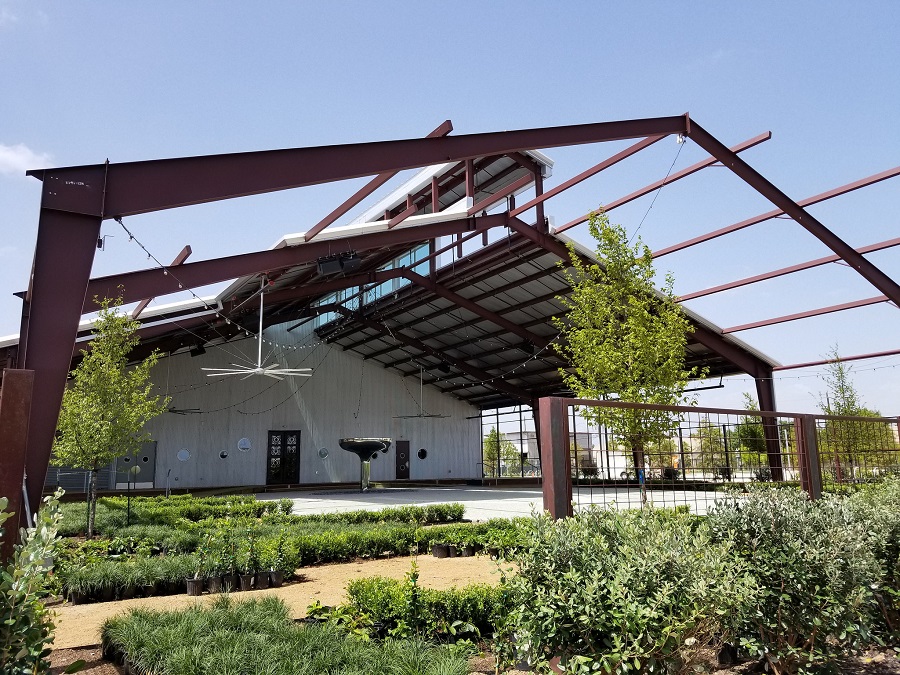 A pair of bills filed recently in Austin aim to let craft breweries across Teas sell beer at their facilities for “off-premises consumption,” reports Houston Public Media’s Katie Watkins. It’s not so unprecedented: According to the Texas Craft Brewers Guild, “Texas is currently the only state where customers can’t purchase a growler or six-pack to-go” at local breweries. (And on top of that, take-out sales of wine and spirits are already legal in Texas at wineries and distilleries.) If passed, the bills, S.B. 312 and H.B. 672 would apply only to breweries making less than 225,000 barrels a year and would set a limit on the amount of take-out product permitted for sale over that time span. Representative Eddie Rodriguez, the House democrat who filed the bill, put it this way to Watkins: “It’s 2019 and people are used to being able to get the things they want.” [Houston Public Media] Photo of Saint Arnold brewery: Marc Longoria
A pair of bills filed recently in Austin aim to let craft breweries across Teas sell beer at their facilities for “off-premises consumption,” reports Houston Public Media’s Katie Watkins. It’s not so unprecedented: According to the Texas Craft Brewers Guild, “Texas is currently the only state where customers can’t purchase a growler or six-pack to-go” at local breweries. (And on top of that, take-out sales of wine and spirits are already legal in Texas at wineries and distilleries.) If passed, the bills, S.B. 312 and H.B. 672 would apply only to breweries making less than 225,000 barrels a year and would set a limit on the amount of take-out product permitted for sale over that time span. Representative Eddie Rodriguez, the House democrat who filed the bill, put it this way to Watkins: “It’s 2019 and people are used to being able to get the things they want.” [Houston Public Media] Photo of Saint Arnold brewery: Marc Longoria
Tag: Laws
A BRIEF HISTORY OF HOUSTON’S FUTURE HISTORIC PRESERVATION CULTURE 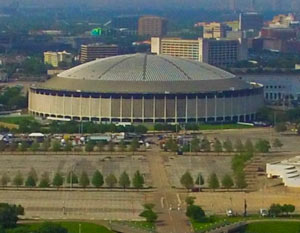 “Houston seems younger than it is,” writes Barry Moore today: “Few would guess that our founding by the Allen Brothers was within a few years of Chicago’s. Why does Chicago seem so much older? The answer is complex.” While the 70-year-old annual conference of the National Trust for Historic Preservation kicks off today in Houston for the first time, Moore charts decades of change in Houston’s laws, tax rules, and attitudes related to letting historic structures and places stick around. And Moore claims that these days, Houston’s out-with-the-old reputation “is itself a relic. Houston has turned a corner. After half a century of organizing, we now have a preservation culture and laws to protect parts of the built environment. This may be hard to believe, but I will argue that no other city in the country has such an opportunity to become ground zero for the future of the preservation movement.” [OffCite; previously on Swamplot] Photo of Astrodome: Russell Hancock via Swamplot Flickr Pool
“Houston seems younger than it is,” writes Barry Moore today: “Few would guess that our founding by the Allen Brothers was within a few years of Chicago’s. Why does Chicago seem so much older? The answer is complex.” While the 70-year-old annual conference of the National Trust for Historic Preservation kicks off today in Houston for the first time, Moore charts decades of change in Houston’s laws, tax rules, and attitudes related to letting historic structures and places stick around. And Moore claims that these days, Houston’s out-with-the-old reputation “is itself a relic. Houston has turned a corner. After half a century of organizing, we now have a preservation culture and laws to protect parts of the built environment. This may be hard to believe, but I will argue that no other city in the country has such an opportunity to become ground zero for the future of the preservation movement.” [OffCite; previously on Swamplot] Photo of Astrodome: Russell Hancock via Swamplot Flickr Pool
COMMENT OF THE DAY: LAYING OUT STRATEGIC ANGLES ON THE NEXT HEIGHTS BOOZE BATTLE  “. . . Flooding? Really? There are no tracts of land any grocer could realistically acquire that are not already paved over for commercial spots. Nobody is going to open a liquor store in the middle of a residential section where there will be no traffic — there’s plenty of storefront space near by. The proposed change won’t impact bars and restaurants. . . . [The backers] are advocating for a policy change with respect to a policy that impacts their business. How else would you propose they do it other than hiring a law firm and PR firm to help them navigate the rather obscure laws that govern this thing?” [Heightsresident, commenting on H-E-B Would Like To Plant a Store in a Wetter Heights Dry Zone] Illustration: Lulu
“. . . Flooding? Really? There are no tracts of land any grocer could realistically acquire that are not already paved over for commercial spots. Nobody is going to open a liquor store in the middle of a residential section where there will be no traffic — there’s plenty of storefront space near by. The proposed change won’t impact bars and restaurants. . . . [The backers] are advocating for a policy change with respect to a policy that impacts their business. How else would you propose they do it other than hiring a law firm and PR firm to help them navigate the rather obscure laws that govern this thing?” [Heightsresident, commenting on H-E-B Would Like To Plant a Store in a Wetter Heights Dry Zone] Illustration: Lulu
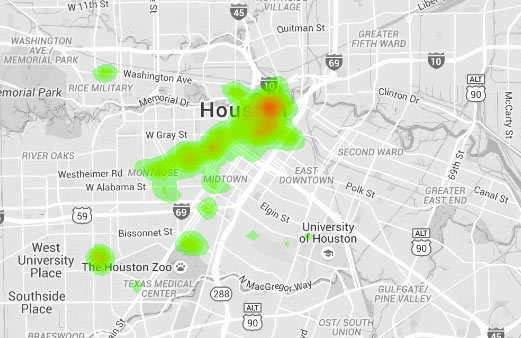
The above heatmap showing where city parking tickets are most frequently issued is one result of an in-progress project by biology major and urban data enthusiast Jordan Poles. Areas shaded red mark where the tickets fall heaviest, while green areas see a lighter citation rain. Grey areas are not ticket-free — rather, the colored regions represent notable clusters of ticket activity (including Downtown, Montrose, Fourth Ward, Midtown, the Museum District, and the Rice Village).
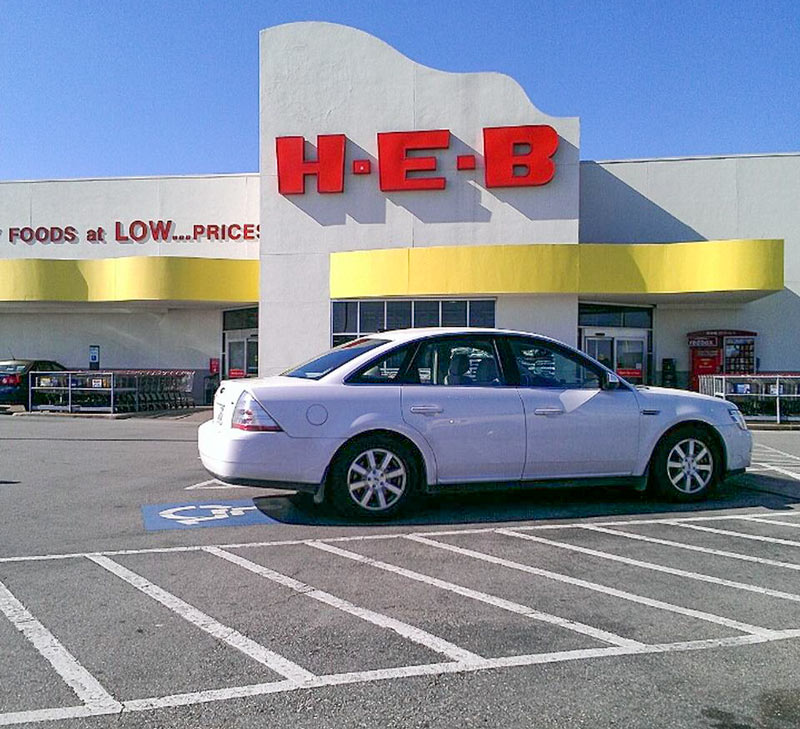
The semi-shrouded Houston Heights Beverage Coalition released a statement today filling in some details on the group’s plan to legalize take-home beer and wine sales in the Heights’ dry zone. The initiative was floated quietly on Cinco de Mayo by way of 109-word newspaper legal notice; the group’s longer press release clarifies that it will try to collect around 1,500 signatures in 60 days to call a special election for residents of the no-longer-a-city of Houston Heights. That election wouldn’t change the zone’s ban on liquor sales (or the need for a private-club-workaround for folks intent on selling it anyway), but would allow grocery stores to get in on the alcoholic action.
Coalition chair Steve Reilley tells the Houston Press‘s Phaedra Cook that H-E-B supports the measure — adding that the chain is probably going to move into the area if the change passes. Reilley also says that other grocery chains are involved with the coalition, but doesn’t tell Cook which ones.
U OF H LAW TAKING ON EMINENT DOMAIN CLASS TO PREP FOR FUTURE AREA LAND GRABS 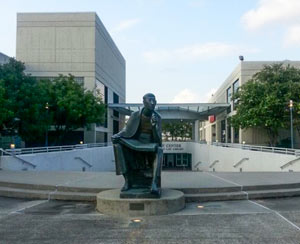 An upcoming course at the University of Houston Law Center will focus entirely on eminent domain, in the wake of a similar course now wrapping up its inaugural semester at UT Austin. The law firm Johns Marrs Ellis & Hodge, whose partners are teaching both classes, says it believes these to be the first 2 law classes in the nation to focus exclusively on “the law of taking”; the courses have been added with the expectation that continued population growth in Houston and more than half a dozen other major Texas cities will continue to fuel future infrastructure capacity-boosting projects — including new pipelines, highways, and transmission corridors potentially criss-crossing now-private property. [PRNewswire] Photo of University of Houston Law Center: Douglas R.
An upcoming course at the University of Houston Law Center will focus entirely on eminent domain, in the wake of a similar course now wrapping up its inaugural semester at UT Austin. The law firm Johns Marrs Ellis & Hodge, whose partners are teaching both classes, says it believes these to be the first 2 law classes in the nation to focus exclusively on “the law of taking”; the courses have been added with the expectation that continued population growth in Houston and more than half a dozen other major Texas cities will continue to fuel future infrastructure capacity-boosting projects — including new pipelines, highways, and transmission corridors potentially criss-crossing now-private property. [PRNewswire] Photo of University of Houston Law Center: Douglas R.
UBER AND LYFT PULL OUT OF AUSTIN, PREPARE FOR CAPITOL Meanwhile, in Austin: Uber and Lyft ceased operations today after a city proposition to overturn requirements for drivers including fingerprint-based background checks was shot down by voters over the weekend. The measure was blocked by 56 percent of the vote, despite $8.6 million in campaign spending by the 2 rideshare companies. State senator Charles Schwertner immediately promised to file state legislation to overturn the matter during next year’s session, implying that the Austin rules (which are less stringent than those required by Houston) are “for the sole purpose of stifling innovation and eliminating competition.†El Paso state representative Joe Pickett, however, suggested that “the most minimal thing that state government could do” would be to leave the issue up to individual cities. [Austin-American Statesman; previously on Swamplot]
HOUSTON IS THE UBER OUTLIER 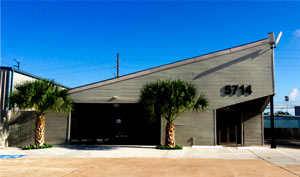 Houston appears to be the only market in Texas in which Uber is willing to put up with regulations that complicate its business model, writes Madlin Mekelburg in the Texas Tribune — following the rideshare company’s abrupt cessations of service in Midland and Galveston on Monday. In Austin, Uber and competitor Lyft are currently funding a campaign against a recently passed city ordinance that would require more intensive background checks involving fingerprinting of drivers — a safeguard Uber accepted in Houston. “Sarfraz Maredia, Uber’s general manager over Houston, declined to say Tuesday why the company wouldn’t accept the same policy in Austin,” Mekelburg writes. “‘It has become clear that Houston is the outlier in how it has chosen to regulate,’ Maredia said. ‘The rest of our markets have focused on passing modern ride-sharing regulations. As a result, our expansion strategy in Texas has changed to focus on launching only in markets that are consistent with that policy.'” [Texas Tribune] Photo of Houston Uber HQ, 5714 Star Ln.: Uber Houston
Houston appears to be the only market in Texas in which Uber is willing to put up with regulations that complicate its business model, writes Madlin Mekelburg in the Texas Tribune — following the rideshare company’s abrupt cessations of service in Midland and Galveston on Monday. In Austin, Uber and competitor Lyft are currently funding a campaign against a recently passed city ordinance that would require more intensive background checks involving fingerprinting of drivers — a safeguard Uber accepted in Houston. “Sarfraz Maredia, Uber’s general manager over Houston, declined to say Tuesday why the company wouldn’t accept the same policy in Austin,” Mekelburg writes. “‘It has become clear that Houston is the outlier in how it has chosen to regulate,’ Maredia said. ‘The rest of our markets have focused on passing modern ride-sharing regulations. As a result, our expansion strategy in Texas has changed to focus on launching only in markets that are consistent with that policy.'” [Texas Tribune] Photo of Houston Uber HQ, 5714 Star Ln.: Uber Houston

The image above, showing a fertilizer-grade ammonium nitrate (FGAN) facility loitering as close as 529 ft. from the edge of an unidentified school campus, appeared on slide 13 of a US Chemical Safety Board presentation in Waco last week. But where is this place? And where are the other Texas locations where similar facilities storing large quantities of ammonium nitrate are sited within half a mile of a school? The Board warns that there are 18 such cozy-ups in Texas, but doesn’t identify their locations — even the image shown above, grabbed from Google Earth and outlined, omits any street labels.
The Waco presentation talked through the safety agency’s recently released findings on the 2013 explosion in West, Texas (located in Central Texas). A school and a nursing home were among the nearby buildings that received serious damage from the fertilizer blast, which killed 15 people and injured hundreds; the safety board report indicates that holes in that city’s zoning laws allowed the storage facility to be slowly grandfathered into a residential area.
Finding out where chemical storage facilities are located, and what they store, is now more of a fun guessing game than it was before the West explosion: In 2014, then-attorney-general-now-governor Greg Abbott’s office ruled that state Tier II data, which documents hazardous chemical storage at private facilities, would no longer be accessible to the public. But those open records weren’t really necessary, not if you’re really trying to find the facilities: “You know where they are, if you drive around,” Abbott told reporters.
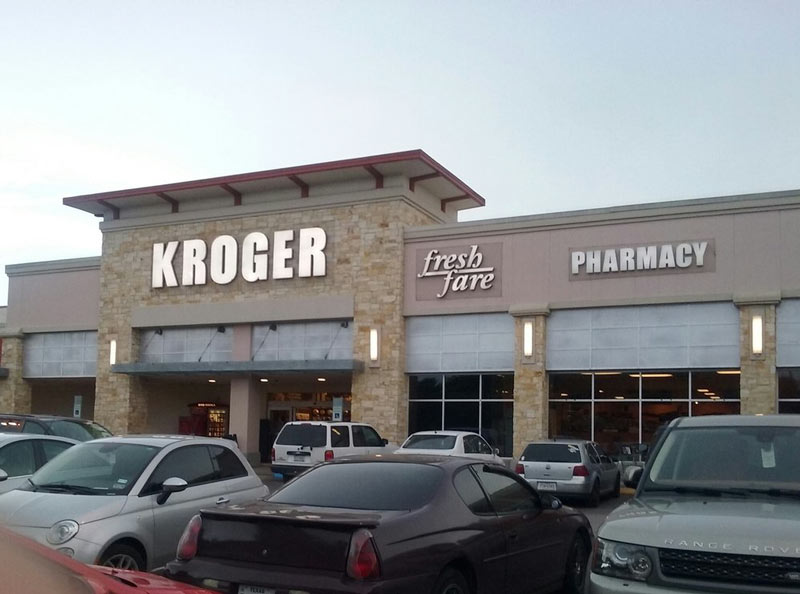
Where you can: Aldi, Kroger, Spec’s (at least some of them), Brook’s Place (where it gets you a discount), Corkscrew BBQ, El Tiempo, Taste of Texas.
Where you can’t: Costco, Fiesta, HEB, Phonicia, Randall’s, Sprouts, Target, Trader Joe’s, the Galleria, Whataburger, and a slew of restaurants across town that have told Kyle Nielsen and friends that they plan to ban openly carried handguns at their establishments. Nielsen created a publicly accessible Google doc listing the yes, no, and maybe-so responses of various Houston grocery stores and restaurants to the question “Will you post a 30.07 sign banning open carry of handguns in your store, starting January 1?”

